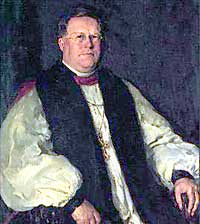Well this past week I read a really biased article about a faith-based prison program in Iowa and the verdict by a judge in that state who is trying to shut it down. I have a good friend who works with Prison Fellowship who runs that program and I know from his accounts all the good these types of programs are doing for those who have run afoul of the law. Yet when I read the report, it was obvious to me that this article by the NYT was skewed in a terrible way.
Well Mark Early, the president of Prison Fellowship has put the record straight. Here is his side of the story...
All the News That's Fit to Print?
By Mark Earley
Regular “BreakPoint” listeners and readers know that a federal judge has ordered a highly successful program for prisoners called the InnerChange Freedom Initiative®, or IFI, to shut down because the judge felt it violated the separation of church and state.Prison Fellowship strongly disagrees. So do the Justice Department, nine state attorneys general, and numerous faith-based organizations. That’s why Prison Fellowship is appealing the case and why the others I just mentioned have filed friend-of-the-court briefs with the appeals court on IFI’s behalf.
Not surprisingly, however, the New York Times agrees with the judge. On its front page last Sunday, the Times ran the following headline above the fold: “Religion for a Captive Audience, Paid for by Taxes.” The headline alone tells you the kind of picture the Times intended to—and, in fact, did—paint: inmates coerced into participating in a government-funded religious program.
But what did the Times not tell us in that article?
Click here to read more...















